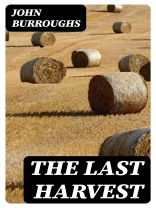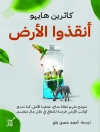John Burroughs’ ‘The Last Harvest’ is a captivating collection of essays that delve into the beauty and intricacies of nature. Burroughs’ writing style is both descriptive and reflective, offering readers a deep insight into the natural world and the author’s personal connection to it. Each essay is rich in detail and laden with observations that showcase a deep appreciation for the wilderness. Written in the late 19th century, ‘The Last Harvest’ captures the essence of the American nature writing movement, reflecting a growing interest in preserving and cherishing the environment. The book serves as a bridge between the transcendentalist ideas of the past and the emerging conservationist movement of the time, making it a significant literary piece in environmental literature. John Burroughs, a renowned naturalist and essayist, was greatly inspired by his explorations of the natural world, which led him to write ‘The Last Harvest’. His keen observations and love for nature are evident in his writing, providing readers with a genuine and heartfelt portrayal of the wilderness. I highly recommend ‘The Last Harvest’ to anyone interested in the beauty of nature and the early conservationist movement in America. Burroughs’ eloquent prose and profound insights make this book a must-read for nature enthusiasts and environmentalists alike.
关于作者
John Burroughs (1837–1921) was an American naturalist and nature essayist, active in the U.S. conservation movement. Burroughs’ literary style interweaves scientific observation with philosophical contemplation, inviting readers to experience nature with a sense of wonder and reverence. His writing conveyed a pastoral vision of the American countryside and has been credited for influencing the nature writing genre, embracing themes of environmentalism and humanity’s place in the natural world. In ‘The Last Harvest’, Burroughs presents a collection of essays that wax poetically on the cycles of seasons, the beauty of the rural landscape, and the bittersweet reflections on the passage of time. Renowned for his rich and accessible prose, Burroughs cultivated a vast audience through his ability to render the complex patterns of nature into simple, relatable musings. His works serve as a cornerstone for both literary critics and conservationists, reflecting the intersection of human experience with the environment. As a testament to his legacy, the John Burroughs Association continues to honor outstanding nature writing through the John Burroughs Medal. Though ‘The Last Harvest’ is a poignant entry in Burroughs’ oeuvre, it is but one example of his enduring commitment to encouraging society’s harmonious coexistence with nature.












